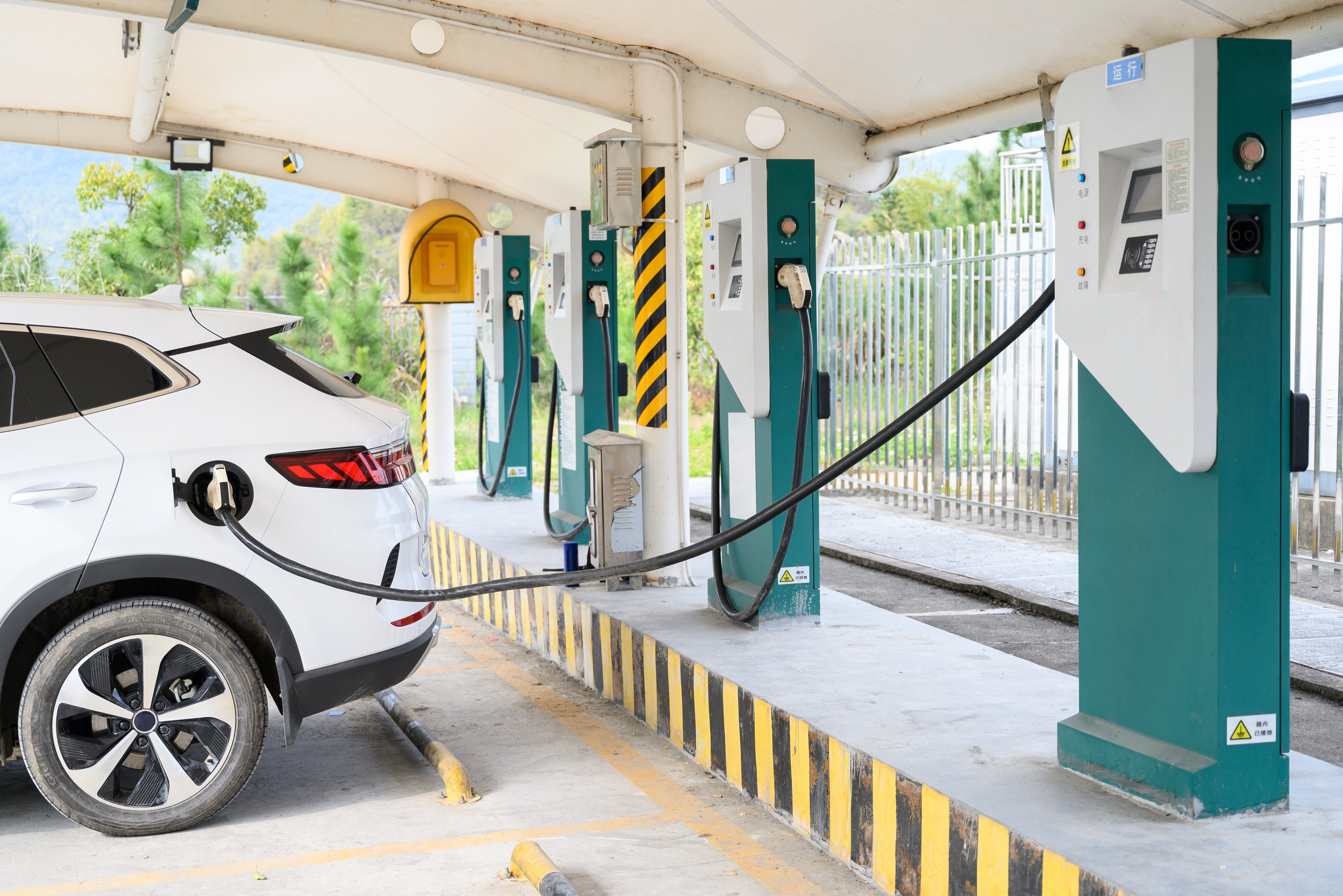1T and Tesla Model S Plaid can go over 500 miles on a single charge. Solid state batteries could potentially push that range even further, with some estimates suggesting over 900 miles on a single charge. This increased range would alleviate “range anxiety,” one of the main concerns for potential EV buyers.
Do Solid State Batteries Charge Faster?
Charging an EV can be a time-consuming process, especially if you’re on a road trip and need to stop frequently to recharge. Solid state batteries have the potential to significantly decrease charging times due to their higher energy density.
Current lithium-ion batteries take anywhere from 30 minutes to several hours to fully charge, depending on the charger’s speed and the vehicle’s battery capacity. With solid state batteries, charging times could be reduced by half or more, making it more convenient for drivers to top up their battery quickly and get back on the road.
This faster charging capability would not only benefit individual drivers but also support the growth of public fast-charging infrastructure, making EVs more accessible and practical for everyday use.
The Future of EVs with Solid State Batteries

The development of solid state batteries for EVs represents a significant step forward in electric vehicle technology. By increasing range and decreasing charging times, these advanced batteries have the potential to revolutionize the automotive industry and accelerate the transition to sustainable transportation.
As automakers continue to invest in research and development of solid state battery technology, we can expect to see more electric vehicles equipped with these high-performance batteries in the coming years. With improved efficiency, reliability, and safety compared to traditional lithium-ion batteries, solid state batteries are poised to drive the next generation of electric mobility forward.
Solid state batteries are revolutionizing the electric vehicle industry by offering faster charging times and increased range. With solid state batteries, EVs can travel up to 80% further on a single charge compared to traditional lithium-ion batteries. This means that an EV with a 300-mile range can now go up to 450 miles without needing to recharge.
One of the key advantages of solid state batteries is their improved safety features. Unlike lithium-ion batteries, which have flammable liquid electrolytes, solid state batteries do not pose the same risk of fire. This makes EVs equipped with solid state batteries much safer in the event of accidents or extreme conditions like flooding.
Recycling solid state batteries is also more efficient and environmentally friendly compared to traditional lithium-ion batteries. Companies like Redwood Materials are dedicated to recycling end-of-life battery materials, including those from solid state batteries. The recycling process for solid state batteries is similar to that of lithium-ion batteries, making it easier for existing infrastructure to handle.
While solid state batteries are a major breakthrough in battery technology, they are not the only option being explored for future energy storage solutions. Other promising technologies include silicon, graphene, and sodium-based batteries. These alternative chemistries offer even greater energy density and faster charging times, paving the way for a more sustainable future powered by clean energy sources.
solid state batteries represent a significant advancement in EV technology that promises faster charging times, increased range, improved safety features, and more efficient recycling processes. As automakers continue to invest in these innovative battery technologies, we can expect even greater advancements in electric vehicle performance and sustainability in the years to come.Faster Charging and Increased Range are two key benefits of solid-state batteries for electric vehicles (EVs). Group14, a company receiving grant funding from the Biden administration, is at the forefront of developing these advanced battery technologies.
Solid-state batteries offer faster charging times compared to traditional lithium-ion batteries. This means EV owners can spend less time waiting for their vehicles to charge and more time on the road. Additionally, solid-state batteries have the potential to significantly increase the range of EVs. With improved energy density and efficiency, drivers can travel longer distances on a single charge.
In addition to faster charging and increased range, solid-state batteries also boast a longer lifespan and improved safety features. These batteries are non-flammable, reducing the risk of fire or explosion in case of accidents. This enhanced safety aspect is particularly important for military applications, as seen with Eonix’s work on non-flammable batteries.
While solid-state batteries may initially be more expensive than traditional lithium-ion batteries, advancements in technology and economies of scale are expected to drive down costs over time. As a result, these high-performance batteries may become more accessible to consumers in the future.
solid-state batteries represent a promising solution for improving the performance and efficiency of EVs. With their ability to deliver faster charging times, increased range, longer lifespan, and enhanced safety features, these advanced battery technologies have the potential to revolutionize the electric vehicle industry.
Solid state batteries are emerging as a promising technology for electric vehicles (EVs), offering faster charging times and increased range compared to traditional lithium-ion batteries. These innovative batteries use a solid electrolyte instead of a liquid electrolyte, which allows for faster ion transfer and reduces the risk of overheating. As a result, solid state batteries can be charged more quickly and hold more energy, providing EVs with longer driving ranges.
One key advantage of solid state batteries is their increased energy density, which means they can store more energy in a smaller and lighter package. This allows electric vehicles to have a longer range without the need for larger and heavier batteries. Additionally, solid state batteries have a longer lifespan and are less prone to degradation over time, making them a more sustainable and cost-effective option for EV manufacturers.
While solid state batteries are still in the early stages of development, several companies are working on commercializing the technology for use in electric vehicles. With ongoing advancements in materials science and manufacturing techniques, solid state batteries have the potential to revolutionize the EV industry by providing faster charging times, increased range, and improved performance. As the demand for electric vehicles continues to grow, solid state batteries could play a key role in making EVs more practical and convenient for consumers.

